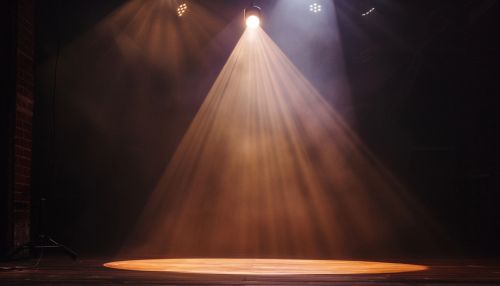Television Comedy
Overview
Television comedy, also known as a sitcom or situational comedy, is a genre of programming that features humor in its narrative, dialogue, and characters. The genre has its roots in the early days of television, with the first sitcoms appearing in the late 1940s. These early shows were often based on popular radio programs of the time, and they set the stage for the development of the genre over the next several decades.


History
The history of television comedy is a rich and varied one, with many different styles and formats emerging over the years. The first sitcoms, such as "I Love Lucy" and "The Honeymooners," were largely based on the comedic situations that arose from everyday life. These shows were often filmed in front of a live studio audience, which added to the sense of immediacy and realism.
In the 1960s and 1970s, television comedy began to evolve in new directions. Shows like "All in the Family" and "M*A*S*H" began to tackle serious social and political issues, using humor as a way to explore and comment on these topics. This was a departure from the more lighthearted fare of the 1950s, and it marked a shift in the way that television comedy was used as a medium for social commentary.
The 1980s and 1990s saw the rise of the "workplace sitcom," with shows like "Cheers," "The Office," and "Parks and Recreation" focusing on the humorous situations that arise in the workplace. These shows often featured ensemble casts and relied heavily on character-based humor.
In the 21st century, television comedy has continued to evolve, with the advent of "dramedy" shows that blend elements of comedy and drama. Shows like "Fleabag," "Atlanta," and "BoJack Horseman" have pushed the boundaries of the genre, exploring dark and complex themes through a comedic lens.
Styles and Formats
There are many different styles and formats of television comedy, each with its own unique characteristics and conventions. Some of the most common include:
- Sitcoms: Short for "situational comedy," sitcoms are typically set in a consistent location (such as a home or workplace) and revolve around a fixed set of characters. Sitcoms often use a multi-camera setup and are filmed in front of a live studio audience.
- Sketch Comedy: This format features short, standalone scenes or "sketches" that are typically unrelated to one another. Shows like "Saturday Night Live" and "Monty Python's Flying Circus" are well-known examples of sketch comedy.
- Animated Comedy: Animated comedies, such as "The Simpsons" or "Family Guy," use animation to create humor that would not be possible in live-action formats. These shows often feature surreal or absurd situations and can tackle topics that might be too controversial or sensitive for live-action shows.
- Mockumentaries: This style of comedy presents fictional events in the form of a documentary, often with the characters speaking directly to the camera. Shows like "The Office" and "Parks and Recreation" are examples of this format.
- Improvisational Comedy: Also known as "improv," this style of comedy involves performers creating scenes and characters on the spot, often based on suggestions from the audience. While not as common in television, there are some examples of improv-based shows, such as "Whose Line Is It Anyway?"
Impact and Influence
Television comedy has had a significant impact on popular culture and society at large. Many sitcoms and comedy shows have tackled important social and political issues, using humor as a way to engage audiences and provoke discussion. Shows like "All in the Family," "M*A*S*H," and "The Simpsons" have been praised for their insightful and often satirical commentary on topics such as race, class, and politics.
In addition to their social impact, television comedies have also influenced the medium of television itself. The sitcom format, in particular, has been a staple of television programming since the medium's early days, and it has influenced the development of other genres, including drama and reality TV.
Furthermore, television comedy has also played a crucial role in launching the careers of many notable actors and comedians. Shows like "Saturday Night Live" and "The Second City Television" have served as launching pads for many performers who have gone on to have successful careers in film, television, and stand-up comedy.
